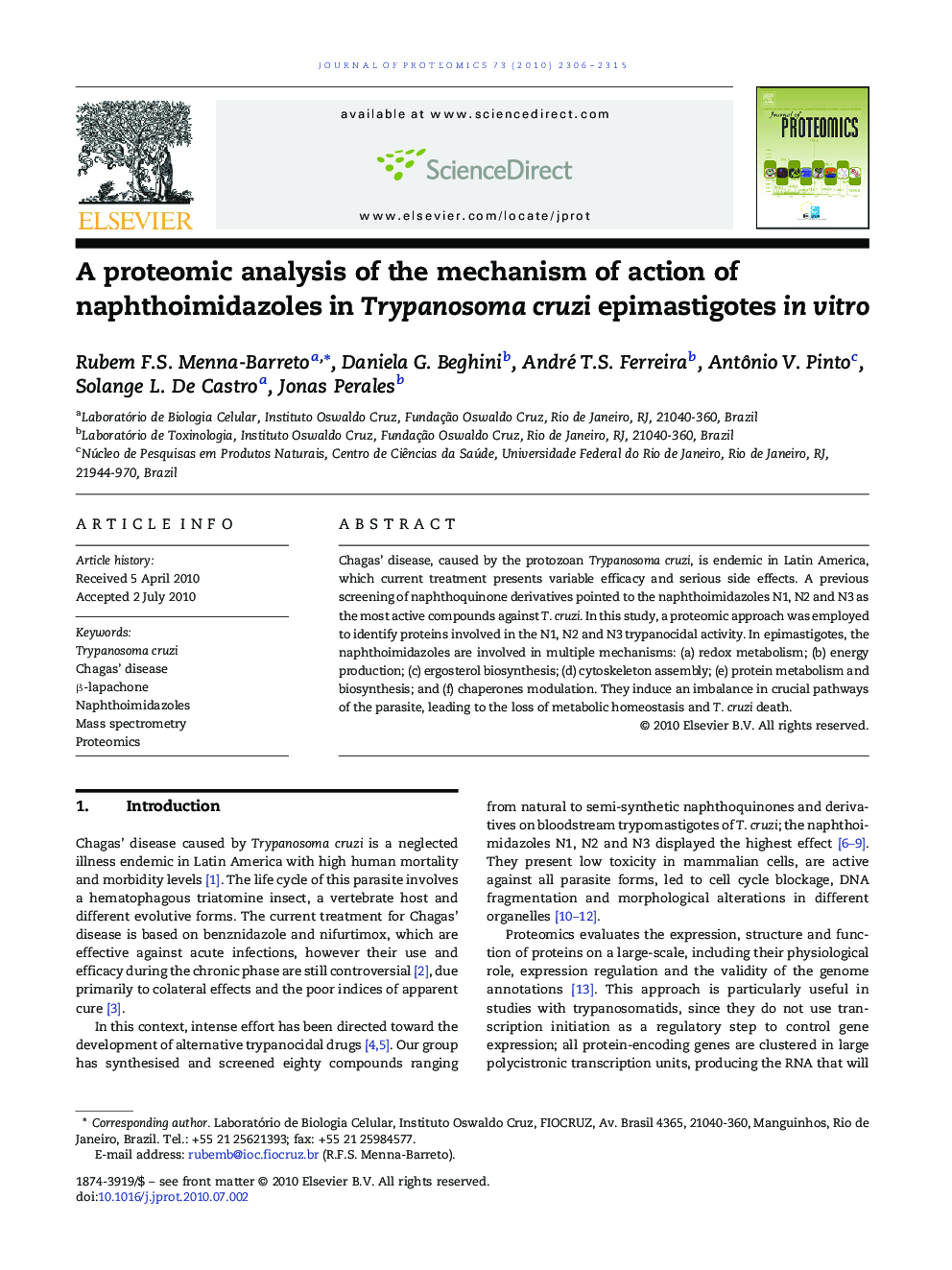| کد مقاله | کد نشریه | سال انتشار | مقاله انگلیسی | نسخه تمام متن |
|---|---|---|---|---|
| 1225532 | 968230 | 2010 | 10 صفحه PDF | دانلود رایگان |

Chagas' disease, caused by the protozoan Trypanosoma cruzi, is endemic in Latin America, which current treatment presents variable efficacy and serious side effects. A previous screening of naphthoquinone derivatives pointed to the naphthoimidazoles N1, N2 and N3 as the most active compounds against T. cruzi. In this study, a proteomic approach was employed to identify proteins involved in the N1, N2 and N3 trypanocidal activity. In epimastigotes, the naphthoimidazoles are involved in multiple mechanisms: (a) redox metabolism; (b) energy production; (c) ergosterol biosynthesis; (d) cytoskeleton assembly; (e) protein metabolism and biosynthesis; and (f) chaperones modulation. They induce an imbalance in crucial pathways of the parasite, leading to the loss of metabolic homeostasis and T. cruzi death.
Figure optionsDownload high-quality image (106 K)Download as PowerPoint slide
Journal: Journal of Proteomics - Volume 73, Issue 12, 10 November 2010, Pages 2306–2315